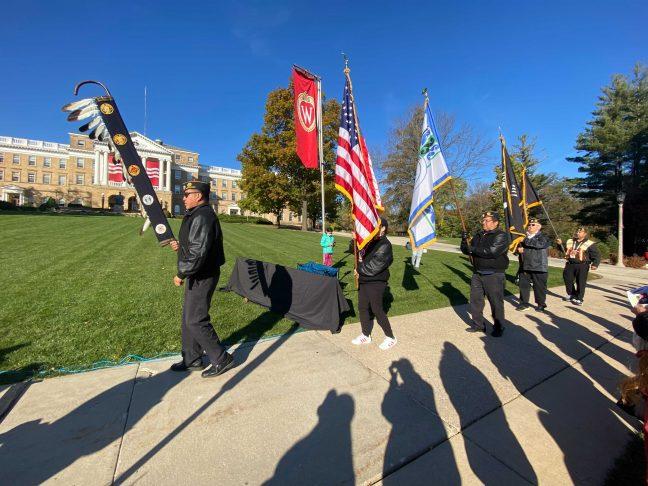Wisconsin is a state rich with Indigenous history and home to 12 different tribal nations. This history is evident in many of the names of Wisconsin towns, lakes and forests. Waukesha and Milwaukee derive their names from Potawatomi words, while Minoqua comes from the Ojibwe language. But only recently did the government remove an offensive term toward Indigenous people from the names of Wisconsin land.
The U.S. Secretary of the Interior, Deb Haaland, started the process of renaming about 650 natural sites on federal land to remove a racist term from the titles of these locations. Twenty-eight federal sites in Wisconsin included the pejorative word used to refer to Native American women.
The renaming process was a nationwide effort that took about one year, beginning in November 2021. The renaming included a public survey for the new names of the locations, during which about 70 tribal governments participated and gave over 1,000 name recommendations.
The names of public sites such as parks, lakes or rivers are incredibly important because they reflect the history and pride of the United States. Many federal lands are named after significant historical figures or events, and the names of these places are important to remembering the history and culture of the United States.
Indigenous cultures already receive such little recognition from the U.S. government, so when that recognition is negatively expressed through derogatory terms, it is not only incredibly offensive but also creates an unequal power dynamic.
This unequal dynamic has existed since European settlement. The government over time has continually overreached its power over tribal nations because they are not internationally or federally recognized in the same way as the U.S. government. The use of a derogatory term in an officially and federally recognized process — such as the names of public lands — is incredibly belittling to Indigenous cultures. It is a way for the government to acknowledge tribal nations in the most offensive way possible.
This is why the renaming of these federal lands is so important because it is no longer a federal exertion of power over tribal nations or a denial of their existence.
Ronald Corn Sr., the Chairman of the Menominee Indian Tribe of Wisconsin, welcomed the changes but admitted disappointment with how long the efforts to change such names took. For 20 years, activist groups have petitioned to remove the racist term from federal lands, but only recently were their complaints acknowledged.
When tribal nations or other marginalized groups previously spoke out about the federally approved use of racist language, the government widely ignored them. Thus the problematic names of these federal lands and other American monuments remained for decades.
The greatest example of this is the Washington Football Team, which for 87 years had a racist term for Native Americans as their team name and a racist caricature as their mascot. During that time, tribal nations and activist groups heavily petitioned for a change in the name and mascot, but only in 2022 did the team officially rebrand as the Washington Commanders.
Even at UW, a rock that was previously atop Observatory Hill was removed from campus in August 2021. The rock had an offensive nickname and was a reminder to students of color of school-acknowledged racism, so officials removed it and stripped the rock of any offensive nicknames.
Renaming is a larger piece of activist efforts to slowly remove structural racism from the United States. The renaming of federal lands, buildings or monuments when offensive, racist or named after problematic individuals, are symbolic of lifting oppression.
Additionally, renaming such sites to have authentic Indigenous names roots those cultures to the land which was unjustly stolen from them. Renaming is also a stepping stone in other activist efforts to remove examples of structural racism such as monuments to Confederate soldiers or racist historical figures.
In Madison today, other renaming processes are taking place. Thomas Jefferson Middle School is in the final stages of renaming to remove the name of a slave owner from the title, according to the Madison Metropolitan School District website. Similarly in 2021, James Madison Memorial High School was renamed Vel Phillips Memorial High School in an effort to honor the woman who fought for desegregation and Black housing rights in Wisconsin.
The action of renaming might seem like a small action to solve a big problem, but it is the beginning of recognition for Indigenous communities — recognition they have not gotten for centuries.
In particular, the Ho-Chunk Nation was recognized on the University of Wisconsin campus in early September. UW officials and Ho-Chunk Nation leaders raised the flag of the Ho-Chunk Nation over Bascom Hill where it will continue to fly throughout the fall semester.
The actions of renaming and flag raising are small steps toward the recognition and appreciation of Indigenous tribes on the UW campus, Wisconsin and the entire country.
Emily Otten (elotten@wisc.edu) is a junior majoring in journalism.


